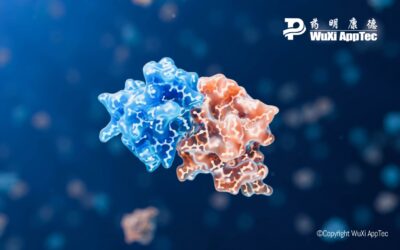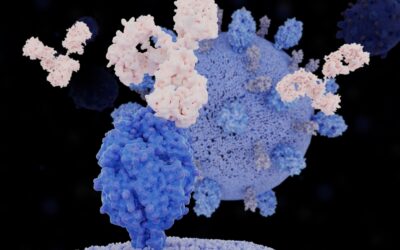Drug-drug interaction (DDI) signifies an essential facet of pharmacological science, given its influence on drug efficacy and the potential for adverse events. DDI occurs when the pharmacological or clinical response to a drug is altered by the presence of another drug, directly or indirectly.
A complex subtype of DDI—e.g., metabolite related DDI—requires specific attention due to the intricate dynamics involved. Metabolites (the byproducts of drug metabolism) may interact with other drugs, leading to altered therapeutic outcomes and patient risk. Understanding these interactions is essential to optimizing therapeutic strategies, minimizing adverse effects and predicting potential risks of simultaneous drug use.
Pharmacokinetics & Pharmacodynamics of Drug Metabolism
Pharmacokinetics (PK) and pharmacodynamics (PD) form the cornerstone of understanding drug metabolism. PK focuses on how the body affects a specific drug after administration, encompassing absorption, distribution, metabolism, and excretion (ADME). On the other hand, PD studies a drug’s biochemical, physiological, and molecular effects on humans.
The liver is central to drug metabolism, harboring several enzymes that facilitate a drug’s biotransformation. The cytochrome P450 (CYP450) family of enzymes is critical in drug metabolism. These enzymes catalyze the oxidation of drugs, leading to the formation of metabolites.
Drug transporters are proteins in cell membranes and can move drugs into and out of cells, impacting both local and systemic drug concentrations. Hence, understanding transporters and their interactions with drugs and metabolites is crucial to understand drug metabolism fully.
Metabolites are often less pharmacologically active than parent drugs, making them easier to excrete. However, metabolites may have interactions with enzymes and drug transporters, creating metabolite related DDI. These interactions can be unpredictable and thus should be properly evaluated.
The Science Behind Metabolite Related Drug-Drug Interactions
Drugs interact on a metabolic level through two primary mechanisms: enzyme induction and enzyme inhibition. Induction involves increasing the regulation of enzyme production, thus quickening drug metabolism and decreasing drug efficacy. Inhibition, on the other hand, happens when a drug or its corresponding metabolite prevents a drug-metabolizing enzyme from doing its job.
Examining specific examples can provide further insight into this complex scientific concept. For instance, the metabolite of gemfibrozil, known as gemfibrozil-glucuronide, acts as a potent and time-dependent inhibitor of CYP2C8. As a result, it exerts a significant and prolonged impact on other drugs that undergo metabolism through the CYP2C8 pathway.
The metabolite gemfibrozil is one example that may help explain this intricate science. Gerfibrozil-glucuronide is a potent CYP2C8 time-dependent inhibitor, which has a significant and prolonged effect on other drugs that are metabolized by CYP2C8. Understanding these mechanisms helps scientists predict, monitor, and manage metabolite related DDI, optimizing therapeutic outcomes and minimizing patient risks.
Implications of Metabolite Related DDI in Clinical Applications
As previously stated, metabolite related DDI has the potential to impact drug efficacy and patient safety significantly. An unexpected interaction can decrease a drug’s therapeutic effect or increase its toxicity.
Personalized medicine uses an individual’s genetic makeup and life circumstances to determine treatment. Understanding patients at this level can help identify individuals with polymorphisms that may alter their drug metabolism and potentially put them at higher risk for DDI. A patient’s age, lifestyle, comorbidities, and concurrent medications are all factors that can influence drug metabolism and the potential for DDI. Careful consideration of these factors can help guide therapeutic regimens and create safer pharmaceutical options.
Navigating metabolite related DDI’s complex landscape requires improving prediction methods and personalized approaches to drive new research.
The Future of Metabolite Related DDI
The field of metabolite related DDI is constantly evolving. Research to improve our understanding and management of these intricate phenomena promises to be vast. For example, refining in silico models—i.e., those that use computer modeling to develop pharmacologic processes—can increase the accuracy of DDI predictions and the exploration of novel biomarkers. Both options can help researchers identify individuals at higher risk of metabolite related DDI.
Moreover, new areas of study like next-generation sequencing and pharmacogenomics may also unveil new strategies to predict and manage metabolite related DDI. Further research is also being conducted around transporter mediated DDI and the role of non-CYP450 enzymes in drug metabolism.
A Final Word
Metabolite related DDI has significant implications for preclinical drug development and clinical practice. The goal of understanding drug metabolism and associated interactions continues to be optimizing therapeutic outcomes and safeguarding patient safety.
Current tools and techniques allow for considerable insight into potential DDI but are not without limitations. Refining these tools and pursuing novel methods—including personalized medicine—is essential to achieving optimal patient care.
The path to understanding metabolite related DDI is complex and unpredictable, but the potential rewards for doing so are substantial. Drug developers and sponsors who lack the expertise or capacity to do this work in-house should consider working with a lab testing partner.
Contact one of our experts for help designing a robust DDI study that clearly elucidates risk and prepares your drug for IND submission.
As a global company with operations across Asia, Europe, and North America, WuXi AppTec provides a broad portfolio of R&D and manufacturing services that enable the global pharmaceutical and life sciences industry to advance discoveries and deliver groundbreaking treatments to patients. Through its unique business models, WuXi AppTec’s integrated, end-to-end services include chemistry drug CRDMO (Contract Research, Development and Manufacturing Organization), biology discovery, preclinical testing and clinical research services, helping customers improve the productivity of advancing healthcare products through cost-effective and efficient solutions. WuXi AppTec received an AA ESG rating from MSCI for the fourth consecutive year in 2024 and its open-access platform is enabling around 6,000 customers from over 30 countries to improve the health of those in need – and to realize the vision that “every drug can be made and every disease can be treated.”


